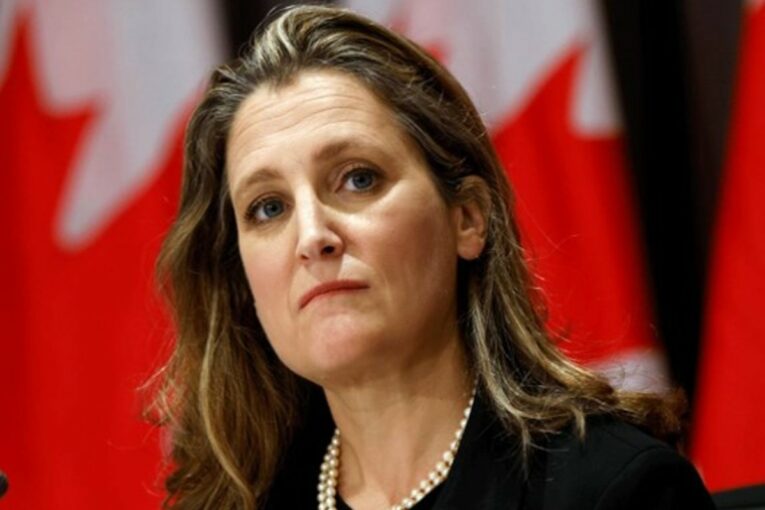
OTTAWA, March 23 (Reuters) – Canada will introduce in its budget next week a 30% investment tax credit to boost clean-tech manufacturing, especially in the electric vehicle (EV) supply chain, two government sources familiar with the document said on Thursday.
The tax credit for capital investments in manufacturing equipment will be a “significant piece” of a bundle of measures aimed at putting Canada’s green-transition effort on the same level as the United States, said one source.
The credit will be available for future investments in equipment used to extract and process critical minerals used in EVs, a second source said, and to purchase equipment used in manufacturing along the entire EV supply chain, including for batteries.
In addition, the tax credit will be able to be used to buy equipment to produce nuclear energy fuels and heavy water, for making electrical energy storage, and for producing solar panels or wind turbines, the second source said.
Finance Minister Chrystia Freeland will present the 2023-2024 fiscal year budget to parliament on Tuesday. Neither source was authorized to speak on the record. A finance ministry spokesperson declined to comment.
Freeland has promised to bolster Canada’s green energy stimulus after the U.S. last year passed the Inflation Reduction Act (IRA), which provides massive incentives for those who invest in clean technology there.
“In an ideal scenario, this will incentivize expanded critical minerals extraction and processing in Canada, and ideally a lot of that will then be purchased and fed into a growing net-zero manufacturing base in the U.S.,” the first source said. U.S. President Joe Biden is due to arrive in Ottawa on Thursday for an official visit that officials say will include an agreement between the two countries to enhance cooperation clean energy and technologies.
Last year, Canada budgeted C$3.8 billion ($2.8 billion) to scale up exploration and infrastructure for critical minerals. Pierre Gratton, president and CEO of the Mining Association of Canada, said more investment is badly needed. Countries across the globe are scrambling to take advantage of a rapid shift to low-carbon energy. Canada has an abundance of the critical minerals used to produce EVs.


“The U.S. does need us… and right now, we’re not on track to deliver,” Gratton said. “So these measures, if they turn out to be in the budget, will help us make sure we can deliver.” Canada sends three-quarters of its exports south of the border, and the automobile industries of the two countries are highly integrated.
Neither source put a price tag on the measure, but they did say it would not apply to projects where investments have already been agreed, such as the two Canadian battery plants planned by carmakers Volkswagen (VOWG_p.DE) and Stellantis NV (STLAM.MI).
Canada has limited financial firepower compared with what the U.S. put forward in the IRA, which many experts say will lead to more than $1 trillion in investment.
Earlier this month, a source told Reuters that green transition budget measures would focus on increasing the capacity of the electricity grid, on battery manufacturing and on mass timber construction, without providing details.
Last autumn, Canada announced investment tax credits for companies that purchase finished clean energy systems, like solar panels. Instead, the new tax credit will apply to manufacturers buying equipment to build things like solar panels.
“It’s about building out the industrial base in Canada,” the second source said.
($1 = 1.3659 Canadian dollars)
Share This:
You can read more of the news on source



